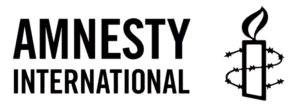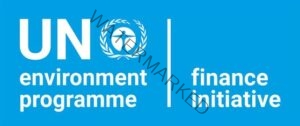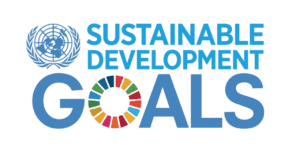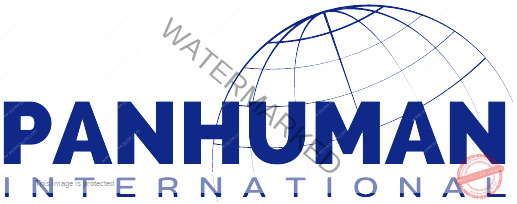Universal Human Rights
Freedom & Democracy
- Home
- Freedom & Democracy
- Freedom and Democracy: Pillars of a Thriving Society
United Nations' Sustainable Development Goals (SDGs)
Freedom & Democracy: Pillars of a Thriving Society
In an ever-evolving global landscape, freedom and democracy remain fundamental pillars for building societies where individuals not only survive but thrive. The synergy between these two ideals—freedom and democracy—creates an environment in which human rights are protected, the rule of law is respected, and individuals have the power to shape their own futures. As we explore the intersection of these concepts, we’ll delve into various forms of democracy, the fight against authoritarianism, and the relationship between sustainable development and a more democratic world.
The Essence of Freedom and Democracy
At the core of any thriving society lies the concept of freedom—the ability for individuals to make choices about their lives without undue interference from the state or other entities. However, freedom cannot truly flourish in isolation. Democracy ensures that these freedoms are institutionalized and protected through fair representation, allowing citizens to actively participate in governance and decision-making.
Human rights form the backbone of both freedom and democracy. They include the right to vote, freedom of speech, and the ability to live with dignity. In many ways, democracy acts as a protector of these rights, offering citizens the opportunity to elect representatives who are accountable to them. Whether it’s through party democracy, direct democracy, representative democracy, or parliamentary democracy, the goal is to ensure that every voice is heard and that the government serves the people.
The Many Faces of Democracy
Direct Democracy: This form of governance allows citizens to vote directly on policies and decisions rather than electing representatives to make decisions on their behalf. While less common on a national scale, it is frequently used in local referendums or initiatives.
Representative Democracy: In this system, citizens elect representatives to act on their behalf. This is the most common form of democracy today, with parliamentary systems and presidential systems offering varying degrees of power to elected officials.
Parliamentary Democracy: This is a form of representative democracy where the executive branch derives its legitimacy from and is accountable to the legislature (parliament). The United Kingdom and Canada are prime examples of parliamentary democracies.
Democracy and Republic: While often used interchangeably, a republic is a form of democracy where the country is considered a “public matter” and the head of state is elected. A republic focuses on the sovereignty of the people, where officials are elected rather than inheriting their positions, as in a monarchy.
Democratization: This is the process through which a country transitions from an authoritarian regime to a democratic system. It’s a critical step toward ensuring that freedom and human rights are upheld.
The Threats of Authoritarianism
As we strive to create a world where freedom and democracy thrive, we must remain vigilant against forces that undermine these values. Authoritarianism, autocracy, fascism, and dictatorship are forms of governance that consolidate power into the hands of a few or even one leader, often at the expense of the rights and freedoms of the majority.
Such systems reject the concept of free elections and diminish the right to vote, which is a cornerstone of democracy. Without this right, the people lose their ability to hold leaders accountable and ensure that governance is conducted in their best interest.
The Role of Sustainable Development in a Democratic Society
A society where freedom and democracy thrive must also ensure the well-being of its citizens by addressing critical global challenges. The 17 Sustainable Development Goals (SDGs), as outlined by the United Nations (UN), serve as a global blueprint for achieving peace and prosperity for people and the planet. These goals aim to eradicate poverty, improve health, and ensure access to clean and affordable energy while promoting durable development and environmental sustainability.
Achieving the SDGs goes hand-in-hand with democratization. A government that is democratic is more likely to invest in human development, create opportunities for education, and address challenges like climate change, environmental degradation, and global warming. The 2030 Agenda for Sustainable Development places a strong emphasis on the relationship between good governance, democracy, and sustainable development, recognizing that democratic institutions are critical to addressing global challenges.
Voting and the Power of Participation
In democratic societies, voting is more than just a right; it’s a mechanism through which citizens express their will, choose their leaders, and shape public policy. Voting is crucial for building governments that are responsive to the needs of the people, whether in presidential systems or parliamentary democracies.
The right to vote empowers individuals to take ownership of their future and engage in the democratic process. By casting a ballot, citizens participate in shaping policies related to education, healthcare, the environment, and the economy. In this way, democracy is inherently linked to both happiness and life longevity, as it allows for the creation of policies that promote well-being and protect fundamental freedoms.
The Road Ahead: A Call for Global Action
Building a world where freedom and democracy thrive requires sustained effort from governments, organizations, and individuals alike. We must support the UN 2030 Agenda and the Commission on Sustainable Development as they work toward a future where economic development does not come at the cost of human rights or environmental degradation.
Likewise, fostering democratic governance is essential for creating an equitable society. Through democratization and the promotion of party democracy, we can ensure that the people have a voice in their governments. Systems of parliamentary democracy and presidential democracy must continue to evolve in response to the changing needs of citizens.
In conclusion, freedom and democracy are the bedrock of societies where individuals can lead fulfilling lives. Through a commitment to sustainable development and democratic governance, we can build a future where everyone, regardless of background, has the opportunity to live in peace, happiness, and dignity. As global citizens, it is our responsibility to fight for a world where freedom and democracy are not just ideals but realities for all.

- Palestine Israel Conflict: A Historical Background Since 19th Century
- Global Conflict Escalation & Potential for a 3rd World War
- Social Justice: Envisioning a Futuristic Egalitarian Society
- Freedom and Democracy: Pillars of a Thriving Society
- Global Poverty Eradication Challenge & Way Forward
- Global Peace & Disarmament Challenge in the 21st Century
- Climate & Environment: Our Collective Responsibility
- Gender Equality Challenge (SDG 5)
- Quality Education for All: A Focus on SDG 4
- Future of Affordable and Clean Energy (SDG 7)
- India’s Democracy at a Crossroads: Crisis or Evolution?
17 Development Goals 17 Sustainable Development 17 Sustainable Development Goals 17 Sustainable Development Goals SDG 17 Sustainable Goals 2030 Agenda Commission On Sustainable Development Development And Sustainable Development Development Sustainable Development Durable Development MDG Millennium Development Goals MDGS Goals Millennium Development Goals SDG Development SDG Goals SDG Of UN SDGs Sustainable Development Goals SDG Sustainability SDG Sustainable SDG Sustainable Development Goals SDG Un SDG United Nation Strategic Development Goals Substantial Development Sustainability And Development Sustainability And Sustainable Development Sustainability SDG Sustainable Development Sustainable Development Goals Sustainable Development Goal SDGs Sustainable Development Project UN 2030 Agenda UNDP SDG UNDP SDGs UNDP Sustainable Development Goals United Nation SDG United Nations Organization Sustainable Development Goals United Nations SDG United Nations Sustainable Development Goals United Nations Sustainable Development Goals (SDGs) United Nation Sustainable Development Goals UN SDG UN SDGs UN Sustainable Development Goals Un Sustainable Development Goal SDG
- Home
- Act of Kindness Video Contest 2025
- Become A Volunteer
- Contact Us
- Donate Now to Support Our Cause
- Fundraising & Digital Marketing Support for Nonprofit Organizations in 2025
- Global Youth Ambassadors' Summit 2025
- News & Reports
- Our Causes
- Drinking Water for Humans & Animals of Drought-Stricken Thar Desert
- Educate a Girl in Pakistan & Give Her a Future
- Help a Family Caught in a War-Zone
- Help Protect a Child Caught in a War-Zone
- Help us Give the Gift of Sight to a Million Poor Blind Children in Pakistan
- Plant a Commemorative Tree to Help us Fight the Climate Change
- Our Mission
- Global Peace and Disarmament Challenge in the 21st Century
- Global Peace and Disarmament: Building a Safer, Inclusive, and Sustainable World in the 21st Century
- Redefining Terrorism for Lasting Global Peace
- Reforming the United Nations for Lasting Global Peace
- The Escalating Global Conflicts and the Looming Threat of a 3rd World War
- Our Vision
- World Peace Ambassadors' Summit 2025
INTERNATIONAL PARTNERS






